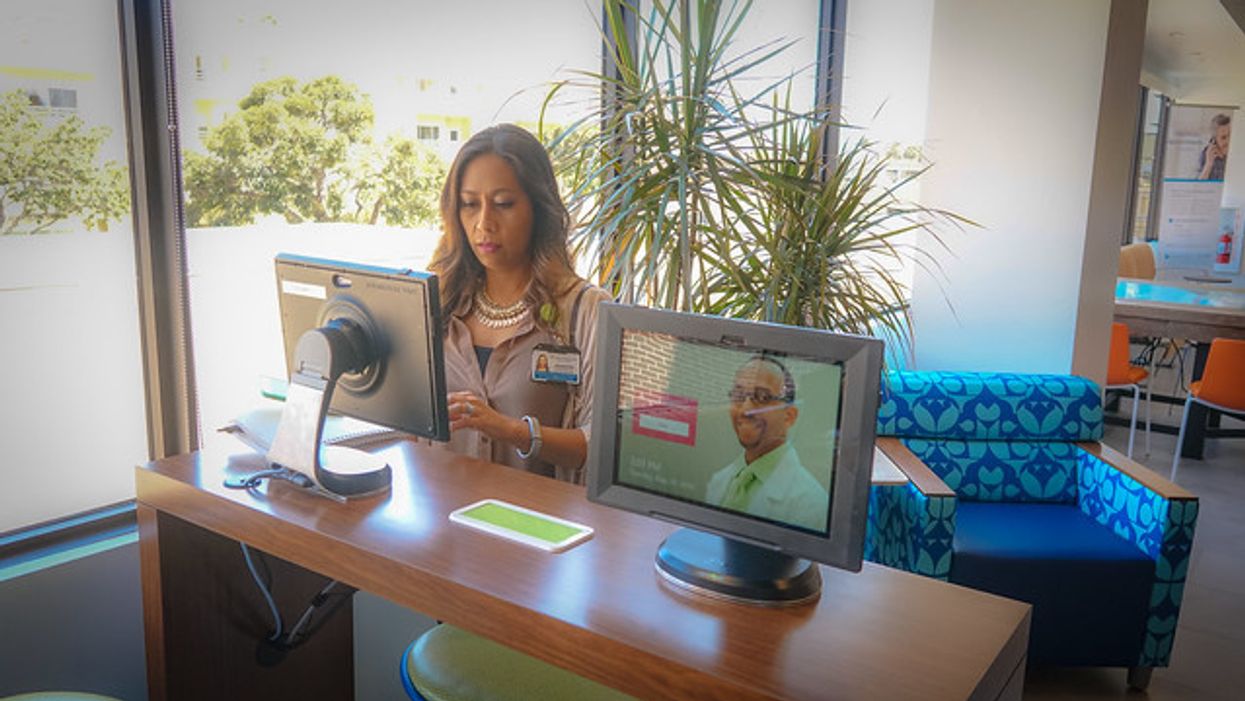
At a time when telemedicine is becoming both more available and more necessary because of the coronavirus pandemic, Republicans are working to ban telehealth procedures for medication abortions.
Lack of access to telemedicine for abortion services may mean that people can't get abortions until later in pregnancy or possibly not get them at all.
Social distancing and stay-at-home requirements have led to a swift and steep increase in the number of telehealth visits, which helps alleviate the strain on doctors' offices and eliminates risks to both health care workers and patients. Even Medicare has temporarily expanded telehealth coverage.
With an eye toward expanding telehealth availability for abortion during the pandemic, doctors in several states are asking the federal government to lift the existing ban on sending medication abortion pills through the mail.
Doing so would mean people wouldn't have to take the twin risks of travel and interaction with health care workers in order to get an abortion in the early stages of pregnancy.
Currently, when telehealth is used for a medication abortion, most patients must still travel, either to a site where abortions are performed or another health center site.
There, they have a videoconference with a clinician who reviews patient records, answers questions, and then remotely prescribes medication.
Only a few states, as part of a Food and Drug Administration pilot program, allow the medication to be mailed directly to the patient after a clinician prescribes it.
What doctors — and the attorneys general of 21 states — are asking the Department of Health and Human Services to do is to lift the general ban on mailing medications used for abortion. That way, patients would not have to leave home at all.
It would also ensure that doctors need not use any personal protective equipment, as they would not be seeing patients directly. According to Republicans, the recent attempts to ban abortion in GOP-dominated states are based on the idea that abortion consumes equipment that should be reserved for those health care workers fighting coronavirus.
However, the Tennessee court considering a ban rightly noted that the government there couldn't show "any appreciable amount" of equipment could be saved by prohibiting even surgical abortions and also held that giving birth consumes far more equipment and requires much more patient interaction.
It's unlikely that HHS Secretary Alex Azar will be amenable to a request to allow abortion medications to be mailed directly to patients needing an abortion. Azar is anti-choice and recently called HHS as "the Department of Life" in a press release touting one of the anti-abortion movement's key events, March for Life.
Moreover, Republicans have been working to ensure telehealth procedures for medication abortions are banned entirely.
If the federal government would allow widespread mail delivery of abortion medication, even temporarily for the duration of the pandemic only, it has an opportunity to take a minor step with a major upside: decreasing the amount of contact between health care workers and patients at a time when that interaction is dangerous.
If the federal government refused to take such a step, people will have to decide whether they feel comfortable traveling and engaging with health care facilities in order to obtain a medication abortion.
And if their state is one that doesn't offer such services in the first place, or is one of several states using the pandemic to ban abortion outright, people will be forced to determine whether they can safely delay their abortion until a yet-undetermined time when it will be legal in their state again. Worse, they may have to decide whether they can afford the time, expense, and risk of traveling to another state.
Some people may be able to afford an expensive out-of-state trip and an expensive later abortion procedure, but not all. Out-of-state travel means taking days off work and finding lodging in another state. It often also involves obtaining child care, as nearly 60 percent of people seeking abortions already have at least one child. So, for many people, a delay in abortion care can be an abortion denied.








Trump Cabinet Nominee Withdraws Over (Sane) January 6 Comments